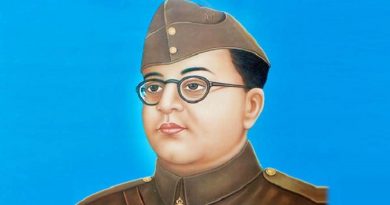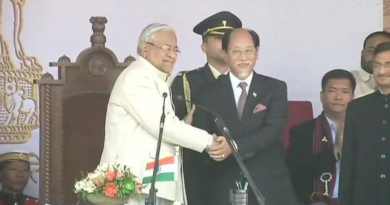Nation awaits instant solutions, tax relief, normality for fast revival
Indian economy is on life-saving policies like incentives, special packages and lending. Even the daily wage workers and small farmers are being planned to be brought under bank-funded credit schemes. The RBI hints at severe inflation risk and the IIP shrinks by 36 percent in the first quarter, 16.6 percent in June alone. The World Bank (WB), which a year back had exuded confidence in India’s progress, in its latest report on August 19 indicated lowering its growth projections. In May, the WB had said that economy was to contract by 3.2 percent in 2020-21. Now it says the contraction would be steeper and fiscal deficit to rise to 6.6 percent. Consumer durables, electronic, fashion and lifestyle are amid steep demand slump. Apparel vendors see about 30 percent fall in orders. In some other items the demand crash by about 50 percent. The Narendra Modi government needs to take bold steps to open up the economy to the village paith – weekly haats – level. The lockdown (LD) has devastated crores of tiny traders moving from one paith to the other every day to eke out a living. Even the nats – folk dancers, magicians and entertainers – sustaining on these paiths and festival markets are fighting to survive as they have no income. The economy has never been at such a nadir since World War II. While various packages announced since April and being mulled are welcome, the nation has to review capacity for giving enormous doles. The shutdown has crippled the economy. Statistically, the disease is sprinting to touch 2.9 million mark though fatality is at below 2 percent negligible. The export market is dull as the destinations are either in LD or in abysmal economic situation with their own demands plummeting. The Economic Advisory Council to PM chairman Bibek Debroy, commerce minister Piyush Goyal and finance Minister N Sitharaman met to find out how free trade agreements (FTA) with Australia, EU, UK and US, ASEAN, Japan, Singapore, Malaysia, South Korea and some friendly countries could boost exports. The finance ministry, however, fears revenue loss.
Though the government is working on various strategies, most of these plans are time-consuming. The nation is in need for immediate relief at the grass-root level. Depressing income of farmers, small businesses, white collar and tiny workers are hitting hard. It has to find out a two-minute noodle solution. The divestment in BPCL and privatization of Air India has virtually been stalled due to the pandemic. The disinvest plans in 18 strategic sectors are being reworked. The government is apparently in a dilemma. On the one hand Defence Minister Rajnath Singh is banning imports of over 100 defence items to boost indigenized production on the other sickness of Steel Authority and various other public sector units is causing concern. Banning Chinese apps is a good move but indigenous manufacturing is yet to pick up. Concern is being expressed over apathy to revive railways and “privatization” of prime trains that is likely to add to its woes. Indian railways is one of the finest organisations. Private trains or its privatization cannot be a solution. The higher recovery rate in covid19, in some areas up to 90 percent or more, calls for resumption of railways, metro, public transport, tourism and hotel industry employing about ten crore people. Similarly, normal air traffic too should be restored. Local passenger air traffic in July falls 82.3 percent in a year. It is neither good for the airlines nor for the people. Strained finances can risk the safety of aircraft as well. The fear of the disease should not lead to create a non-productive nation. The government has a bit of anxiety but it would have support of the people if normality is restored. According to filings of 40 leading BSE 100 companies’ results till June 2020, every sector is under severe stress. It has hit aviation to automobiles, capital goods, consumer items including alcoholic beverages. The deepest impact is seen on non-essential manufacturing and services. Even the education sector is hit. These have reduced aggregate employee expenditures – United Spirits 12.7 percent; Bajaj FinServ 14.8 percent; Suzuki India 15 percent; HDFC Life 21 percent; Tata Motors 26 percent; Havells India 27 percent and Mahindra 36.7 percent. The hi-tech firms of Bengaluru have sacked, reduced wages or not paid for the last many months. The rural sector is equally hit. Despite direct benefit transfers, cash is in short supply and rural workers are without jobs. Distressed people are hit by rising retail inflation. It shot to 6 percent in April and almost 7 (6.93) percent in July against 3.15 percent last year. The CPI data in June was 6.23 percent due to rising food, personal care and transportation costs owing to high fuel prices. The National Statistical Office notes 9.62 percent inflation in vegetables, pulses, spices, meat, fish, fruits and other food items. In June food inflation was 8.72 percent. Higher inflation is due to supply side disruptions. It is abetted by higher transportation costs. Disruptions in economic activities and localized LDs has affected free movement of goods leading to spurt in prices. Amid such a situation increasing cost of petrol and diesel is being described as penny-wise. For small revenue realizations entire economy is hit. The RBI has taken a prudent decision of not reducing repo rate. In fact, in situation like this the interest rates should move up. The government also has to exempt the bank deposits of up to Rs 5 crore from income-tax. The taxes on interest accrual is hitting the average people, senior citizens and depressing demand. Interest payment must not be treated as earning. It is mere hedging against inflation. Average interest accrual is around 6 percent or less in an inflationary environ of around 10 percent. Prime Minister Narendra Modi must intervene to correct this anomaly. If people pay high taxes, they are forced to compromise on their demands. Modi has done well in ensuring transparent tax environment. Exempting interest accrual from I-T would go a long way in fast revival of the economy as well as the banking sector. Economy needs novel steps. People across the nation now want normal functioning to resume as they are in severe stress and starvation or death lurking at them. Picture courtesy: The Statesman




